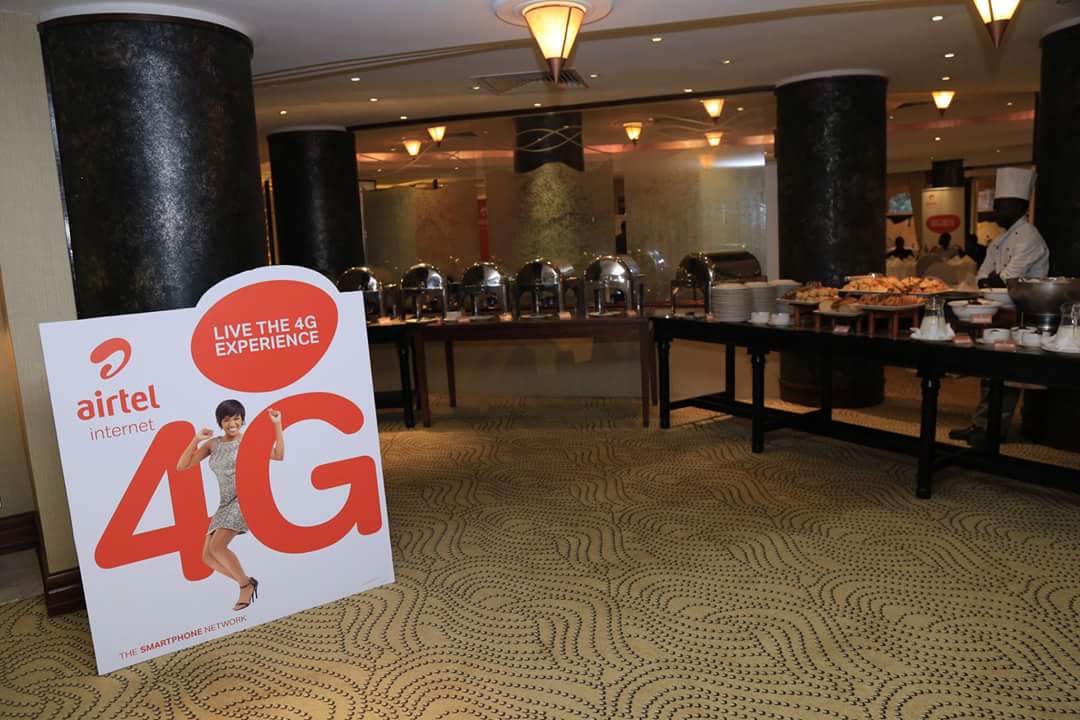Airtel Kenya, a mobile service carrier that has been operating on negative revenues for a while now and thought to be thinking of an exit strategy, has surprised the Kenyan market by paying the $25 million license fee to roll out 4G LTE network.
This news was confirmed by the Communications Authority of Kenya (CA). “Airtel Networks Kenya Ltd has paid the 4G LTE 800 MHz license fee of $25 million,” said the CA in a statement.
Airtel Kenya, currently the second-largest mobile service carrier in Kenya by market share, is said to have paid the license fee early in January. Although the carrier has been operating on the 4G internet spectrum for about a year now on a trial basis.
The carrier becomes the second telecommunication company to have officially acquired the 4G LTE spectrum license. It follows Safaricom, which is the market leader in the Kenya mobile carrier space.
“We are in the process of (officially) rolling out 4G and we expect to officially launch soon. We are driving towards the fastest speeds at the most affordable rates in Kenyan market with Airtel 4G,” said Airtel Kenya in a statement.
“Customers with 4G-enabled phones together with 4G SIM cards are now able to experience our 4G network in various parts of Nairobi.”
Other carriers such as Telkom Kenya and Jamii Telecom’s Faiba 4G, though have 4G LTE networks, are operating on a trial basis as well. Telkom Kenya, 40% owned by the state, had its trial license expire sometime in September last year, but it successfully lobbied to have the trial-period extended for another six months.
“Telkom Kenya is yet to pay the fees since it is still undertaking the trial until end of March 2018,” said the CA.
Faiba 4G, a mobile carrier service division of the previously fiber-only ISP, Jamii Telecom, has a trial license that will expire sometime in June this year.
Mobile Data is the current battlefront for carriers, thanks to proliferation of smartphones
Unlike the old days, when the primary way of communication was via voice calls and SMS. These days smartphones use is quite popular in the Kenyan market, and with that comes the use of over-the-top communication apps like WhatsApp and other social media.
Now that most of these apps support both voice and video calls on top of instant messaging, more people are making calls over the internet. This development has seen the fall in revenues for telecoms from traditional voice calls and SMS. While the consumption of mobile data has increased significantly.
The proliferation of Chinese phones with dual SIM cards has also opened the options for users. Where one primarily SIM card line can always be maintained in one slot while the other slot is easily swapped with a SIM card from a telecom with the lowest mobile data rates and fastest connection speeds.
The dual SIM card, dual standby setup has seen the breaking of market monopoly in as far as mobile data is concerned. In Kenya, the Safaricom network remains the primary network of choice given its spread and mobile money service. However, when it comes to mobile data, other players such as Airtel Kenya and Telkom Kenya are giving Safaricom a run for its money because they almost always charge less and their speed is ‘decent’ most of the time.
Safaricom Data Bundles are priced as follows; 1GB at Sh. 500, 3GB at Sh. 1,000, 7.5GB at Sh. 2,000, and 12GB at Sh. 3,000.
Airtel Kenya data bundles are priced at 1GB at Sh. 300, 3GB at Sh. 500, and 6GB at Sh. 1,000. While Telkom Kenya charges 1.5GB at Sh. 499, and 100GB at Sh. 8,999.



